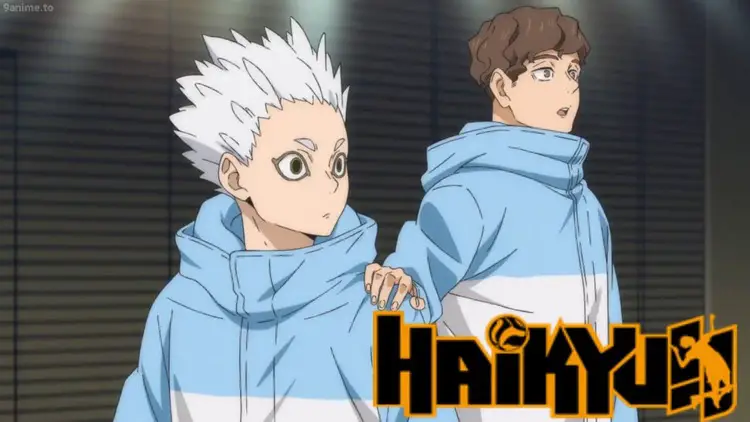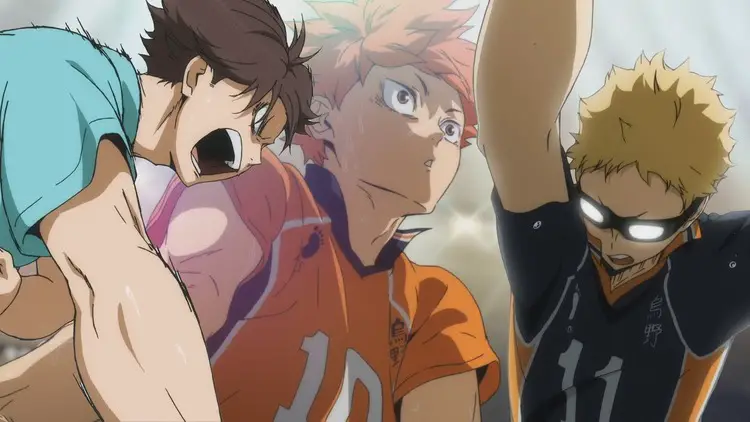
Millions of fans all over the world are devoted to the Japanese anime and manga series Haikyuu!!, or simply Haikyu.
A high school volleyball team’s quest to become the greatest in Japan is the focus of the series. The Production I.G-produced anime adaptation debuted in April 2014 and has since been broadcast in four seasons with a total of 85 episodes.
But have you ever questioned how it got its name, Haikyu?
So, Why The Anime Is Called Haikyu? Haikyu is a phrase on the Japanese words “haikyuu” (排球), referring to volleyball, as well as “haikyuu” (配給), which indicates distribution or allocation.
We will examine the name’s etymology and the series’ importance in this article.
Why The Anime Is Called Haikyu?
These two phrases are cleverly combined in the title, which is meant to represent the team’s quest for efficient and successful ball distribution during games.
However, the title isn’t just a straightforward pun. A deeper connotation associated with the name “Haikyu” reflects the ideas and messages of the series. Haikyu is fundamentally a tale about tenacity, cooperation, and the quest for excellence.
Both on and off the court, the series’ characters must develop a sense of teamwork and persevere through hardships in order to accomplish their objectives.
RELATED
The TOP 10 Teams In HAIKYUU!!
The name “Haikyu” represents this spirit of tenacity and cooperation. The ball is regularly passed or disseminated among the players on the field in volleyball.
For the ball to be passed, set, and spiked precisely and accurately, the team must properly cooperate and communicate. Each participant must rely on the others for success because they each have a distinct role to play.
The catchphrase from the series, “Fly High!” also reflects this spirit of sharing and cooperation.
The characters frequently urge one another to keep moving forward and aiming for greatness by using this statement to inspire and motivate one another.
Haikyu’s Unique Style

An additional dimension of meaning for the word “Haikyu” emphasizes the show’s message of kindness and reverence. “Senpai-kohai,” a term used to describe the relationship between upperclassmen and lowerclassmen in Japanese culture, is a common expression.
When it comes to mentoring and guiding their younger counterparts, upperclassmen are supposed to take the lead, while lowerclassmen are expected to offer their seniors respect and consideration.
The organizational structure of the volleyball team at Karasuno High School reflects this relationship, with the older, more seasoned players serving as coaches and role models to the younger, less seasoned players.
RELATED
HOW TO Watch Haikyuu In CHRONOLOGICAL ORDER?
The phrase “Haikyu” might be read as an appellation to the characters to honor their senpai and cooperate in order to accomplish their objectives.
Fans frequently use the term “Haikyu” to refer to the program because it has come to be synonymous with the series. On social media, it has also gained popularity as a hashtag, with users using it to highlight their favorite series of moments and quotations.
In addition to its memorable name, Haikyu is well-known for its sympathetic characters, thrilling volleyball matches, and motivational message of tenacity and cooperation.
Fans of various ages and backgrounds have flocked to the series because of its themes and messages, which have helped it amass a huge global fan base.
The volleyball game has also been significantly impacted by Haikyu. The television show has helped volleyball become more well-known in Japan and across the globe by encouraging a large number of young fans to take up the sport.
Many professional volleyball players have expressed their enthusiasm for the series, which has received accolades for its accurate and meticulous portrayal of the sport.
RELATED
Which Haikyuu Character Are You?
Haikyu and the Importance of Teamwork: Lessons on Hard Work, Perseverance, and Never Giving Up on Your Dreams
Haikyu is not merely a smart spin on the Japanese words for distribution and volleyball. It embodies the show’s themes and takeaways, like tenacity, cooperation, respect, and humility.
As a reminder to the characters and the audience alike to never give up, cooperate, and strive for excellence, the title and motto “Fly High!”
Millions of admirers worldwide have fallen in love with Haikyu, and its influence has extended beyond the world of entertainment.
It has boosted volleyball’s appeal in Japan and elsewhere by encouraging young people to take up the sport.
Fans now refer to the program as “Haikyu” and share their favorite scenes on social media, making it a cultural phenomenon.
It’s also vital to recognize that Haikyu’s appeal extends beyond anime and manga. Additionally, the property has inspired numerous stage productions, light novels, and even video games.
The volleyball team from Karasuno High School, which aspires to be the finest in Japan, is followed throughout the narrative as they progress.
Shoyo Hinata, the main character, is a short but tenacious player who aspires to be the best in the entire globe.
He and his colleagues confront numerous difficulties along the way, but they are always able to get beyond them thanks to their comradery and tenacity.
The Meaning Behind the Title: How the Words “Haiku” and “Kyu” Reflect the Themes of the Series

The series title, Haikyu, is appropriate because it both refers to volleyball as a sport and to the main elements of the plot. In order to score points in the game of volleyball, players must cooperate and distribute the ball fairly.
The Japanese words “haiku” (distribution) and “kyu” (ball) are combined to form the English word “Haikyu”. This is similar to how volleyball is played, where players must distribute the ball fairly in order to score.
It also represents the concepts of the narrative, in which the characters must cooperate to accomplish their objectives.
Haikyu is a coming-of-age tale as well as a sports anime. All of the series’ characters are high schoolers looking for their place in the world. Along the way, they encounter numerous difficulties and barriers, but they always manage to get through them thanks to cooperation and tenacity.
The show imparts important lessons on perseverance, hard effort, and never giving up on your aspirations.
In addition, Haikyu has had a large influence on volleyball’s appeal both within and outside of Japan. The show has encouraged a lot of young people to start playing volleyball, and it has even increased sales of volleyball-related items.
The public’s awareness of volleyball games and competitions has expanded as a result of the series’ popularity.
Haikyu is a well-liked sports anime and manga that has won the hearts of countless fans all over the world.
The franchise has also had a big impact on volleyball’s popularity in Japan and elsewhere, encouraging a lot of young people to start playing.
It’s worthwhile to study more about the Japanese language and tradition if you’re curious about the history of the name “Haikyu.” The word “Haikyu” is formed up of 2 kanji characters: “配” and “球.” The primary character, “配,” indicate “distribution” or “allocation,” whereas the 2nd character, “球,” means “ball” or “sphere.”
These symbols come together to form the word “Haikyu,” which means “allocating the ball” or “distribution ball.”
In volleyball, it’s essential to distribute the ball among the team members fairly if you want to score points and win games. To succeed, each player must cooperate with their teammates and fulfill a specified function. These ideas, as well as the value of cooperation and teamwork in volleyball, are reflected in the title “Haikyu”.
The title, however, also has a deeper significance in Japanese culture. A three-line poem with a 5-7-5 syllable structure is known as a “haiku” and is a type of Japanese poetry.
It’s possible that the term “haiku” in the title “Haikyu” alludes to volleyball’s lyrical nature as well as to the beauty of cooperation and teamwork. Volleyball is a game that demands accuracy, timing, and close attention—just like a haiku.
The Japanese word “Haikyu” has various cultural implications outside its lyrical overtones. The word “kyu” also has the meanings of “class” or “rank,” which emphasizes volleyball’s competitive spirit and the ambition to be the best.
Thus, “Haikyu” incorporates the series’ major themes of cooperation, rivalry, and aspiration for perfection.
It’s important to note that the Japanese version of the series just has the name “Haikyu” in its title. The title might be translated differently in other languages. For instance, the series is simply referred to as “Haikyu!!” in English-speaking nations.
This captures the intense thrill and high intensity of the show as well as the characters’ love of volleyball.
As a nod to the value of teamwork and cooperation in volleyball, the name “Haikyu” combines the Japanese terms for ball and distribution.
Conclusion
But the title also carries deeper cultural connotations, such as allusions to Japanese poetry and the rivalry in sports. The series’ success has raised awareness of volleyball in Japan and elsewhere, creating a cultural phenomenon with a long-lasting effect on both anime and sports fans.
